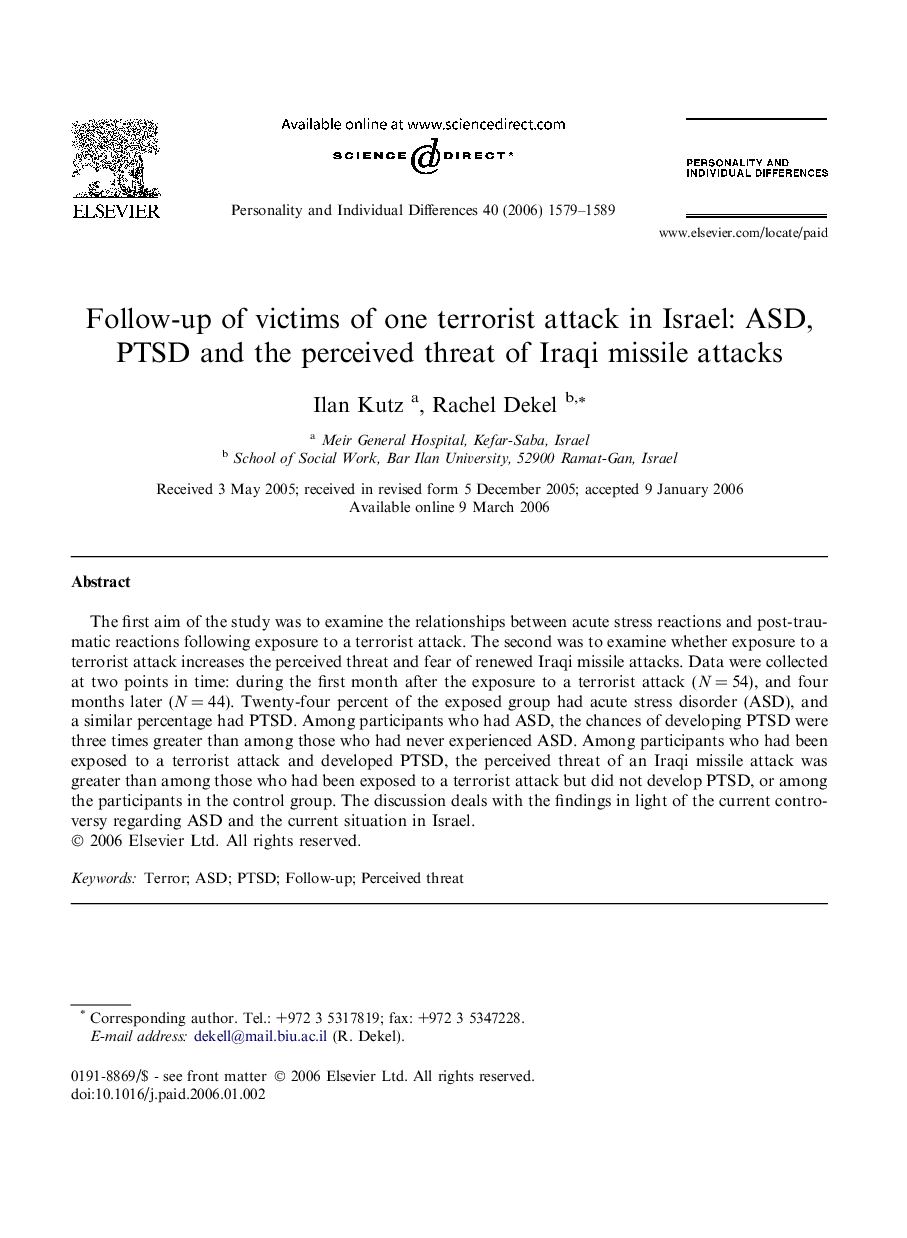| Article ID | Journal | Published Year | Pages | File Type |
|---|---|---|---|---|
| 893217 | Personality and Individual Differences | 2006 | 11 Pages |
The first aim of the study was to examine the relationships between acute stress reactions and post-traumatic reactions following exposure to a terrorist attack. The second was to examine whether exposure to a terrorist attack increases the perceived threat and fear of renewed Iraqi missile attacks. Data were collected at two points in time: during the first month after the exposure to a terrorist attack (N = 54), and four months later (N = 44). Twenty-four percent of the exposed group had acute stress disorder (ASD), and a similar percentage had PTSD. Among participants who had ASD, the chances of developing PTSD were three times greater than among those who had never experienced ASD. Among participants who had been exposed to a terrorist attack and developed PTSD, the perceived threat of an Iraqi missile attack was greater than among those who had been exposed to a terrorist attack but did not develop PTSD, or among the participants in the control group. The discussion deals with the findings in light of the current controversy regarding ASD and the current situation in Israel.
